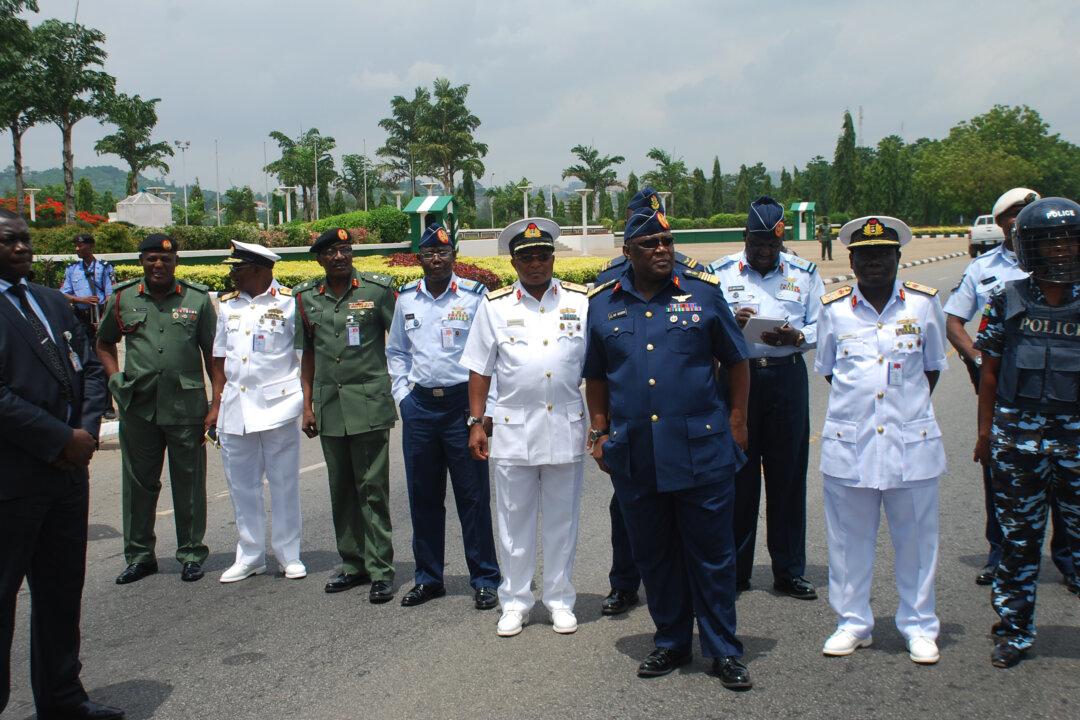LAGOS, Nigeria—Nigerian military abuses have caused the deaths of some 8,000 civilians in the fight against Boko Haram extremists, Amnesty International said in a report released Wednesday. On the same day, the terror group was suspected of setting off a deadly bomb blast in a northeastern Nigerian city.
The London-based human rights group named senior officers it wanted tried for alleged war crimes and called on Nigeria’s newly elected government, led by former military dictator Muhammadu Buhari, to look into the abuses.
“The Nigerian military, including senior military commanders, must be investigated for participating in, sanctioning, or failing to prevent the deaths of more than 8,000 people murdered, starved, suffocated, and tortured to death,” said Amnesty.
If correct, those figures would exponentially increase the estimated toll from the nearly 6-year-old Islamic uprising, put at about 13,000 dead.
Nigeria’s Ministry of Defense denounced the report as “biased” and another attempt by the organization to “blackmail” the military hierarchy.





